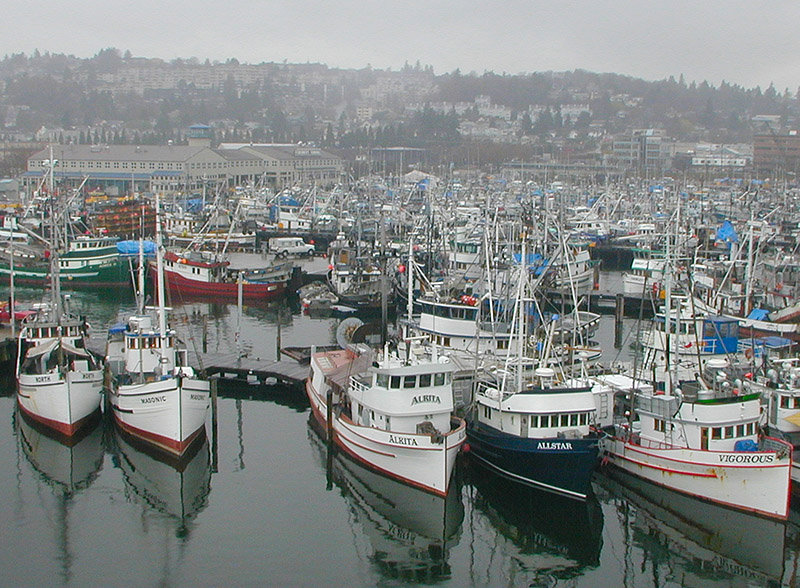The following is an open letter to President Donald Trump.
 In your campaign, you correctly recognized that many basic industries in the United States — ones that have created stable jobs and communities for generations — have increasingly come under siege. You identified globalization, overzealous regulation, and the past administration’s inclination to advance international policy goals at the expense of domestic jobs, as among the culprits.
In your campaign, you correctly recognized that many basic industries in the United States — ones that have created stable jobs and communities for generations — have increasingly come under siege. You identified globalization, overzealous regulation, and the past administration’s inclination to advance international policy goals at the expense of domestic jobs, as among the culprits.
Your words struck a chord among many in the commercial fishing industry, where middle class jobs have been hollowed out of the coastal communities. There are many fishing ports around the country that bear witness to this sad fact.
While your policy prescription is general, like advanced cancer treatments, the best cures may be patient-specific.
We’d like in this column to focus on infrastructure, but not infrastructure as it’s generally thought of. There are plenty of fishing vessels available for use. Many issues with fish processing are largely a function of disuse, rather than a lack of capacity. Instead, we respectfully ask you to focus on the intellectual infrastructure of fisheries management.
Among our chief complaints with the administration just past is that it was long on big plans, but short on follow-through. It’s one thing to center fisheries management policy on data-hungry ecosystem management models and complex catch share programs. It’s quite another to implement these regimes effectively.
Maybe worse than being overzealous, fisheries management in the Obama administration became over-ambitious.
A reflexive reaction might be to throw out all regulation, but that’s not the solution, either. Sustainable fisheries do produce more economic benefits. The U.S. Atlantic scallop fishery is but one example of a somewhat flexible management regime producing an ecologically stable fishery. The lean years have become less lean, and the good — even great — years more prevalent. Product quality improved. Scallopers maintained a consistent level of supply when the rest of the world couldn’t or didn’t. Marketplace rewards followed.
Also, and this may be controversial even among our clients, but starving managers of federal funds does not necessarily make them do less. Specifications need to be set each year, and much of fisheries regulation is just keeping up with what’s happening in the ocean. A lack of resources can, however, make them do what they do less well. “Bureaucratic incompetence” can become a self-fulfilling prophesy when there aren’t sufficient funds for data collection and brain power.
At the same time, there’s a balance to be struck. Existing federal dollars can and should be used a lot more wisely. In our experience, federal fisheries surveys can be two to three times less expensive if they are conducted aboard fishing vessels in cooperation with good scientists. What this means to us is that you can get three times the survey coverage for the same price, put fishermen to work, and have the better data that should yield better management results.
Fishermen’s dollars should also be used more wisely. There are alternatives to the high data transport costs of satellite-based VMS systems. Seven-hundred dollars a day is, moreover, pretty steep for observers. Wouldn’t it be smarter to figure out how to harness technology to implement reasonable monitoring and stop spending scarce funds subsidizing fishermen to carry observers?
You have advocated the use of public-private partnerships to make great and immediate strides in our country’s physical infrastructure: roads, bridges, airports and the like. As we just explained, these same kinds of partnerships can build the intellectual infrastructure of fisheries management. Tremendous opportunities exist to forge partnerships with universities and scientists around the country. There is never a shortage of fishermen willing to invest in cooperative research to get better information. Collaborative work can and should be done on new and better gear technologies that more efficiently harvest target species and minimize bycatch. These steps intelligently leverage federal dollars in pursuit of quality.
The past eight years produced a series of seemingly unending headline-seeking presidential marine monument pronouncements, star-studded fisheries confabs that included everybody but fishermen, task forces from A to Z, fisheries management systems infatuated with complexity at the expense of precision, and top-down management. We’ve had it with style over substance.
You can put America first by putting your trust in working Americans to be part of the solution.
Thank you for your attention and support, and best of luck in the coming years.







